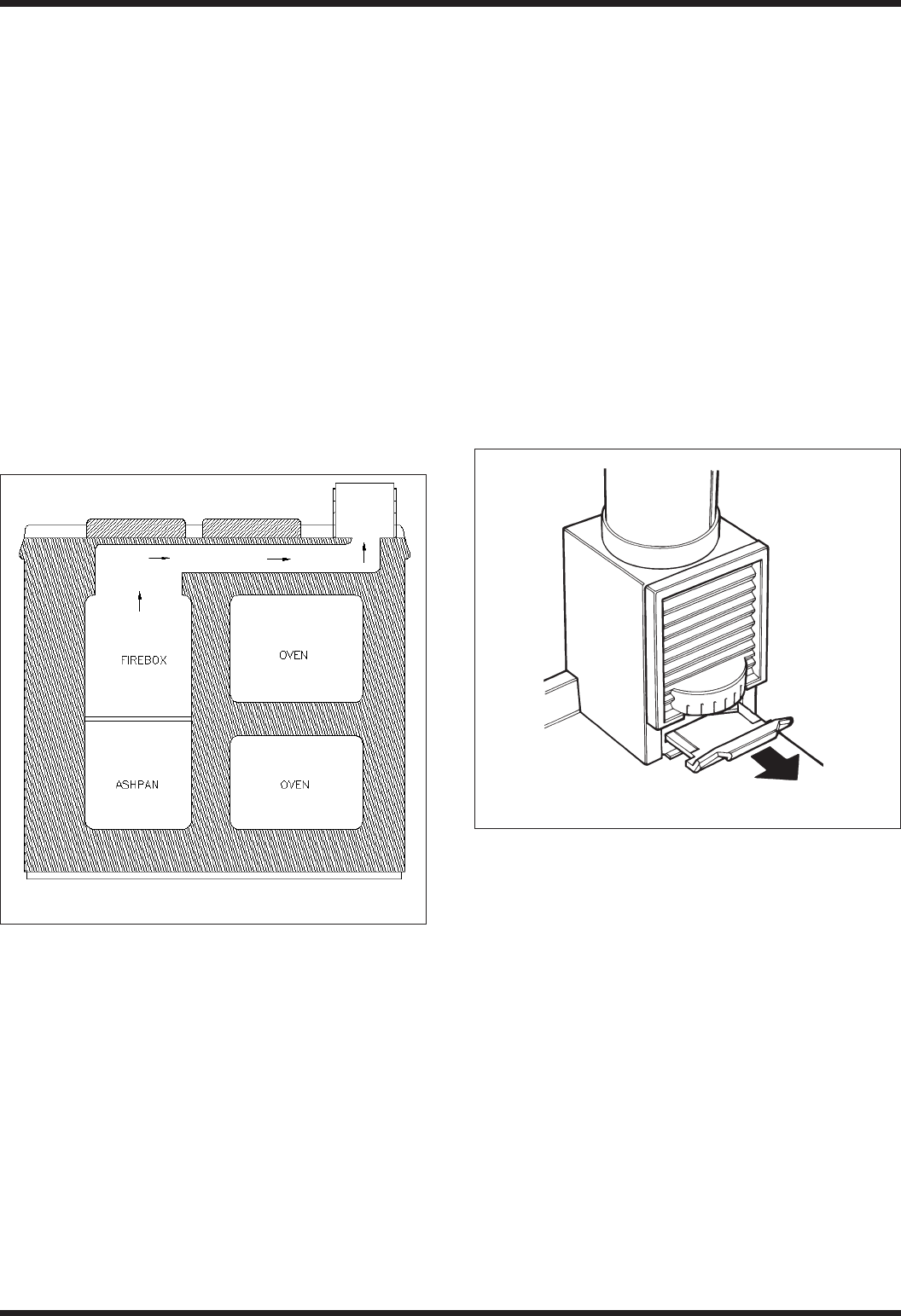
Break-In Fire
SMOKE/SMELL EMITTED DURING INITIAL USAGE.
Some parts of the stove have been coated with a light
covering of protective oil. During initial operation of the
stove, this may cause smoke/smell to be emitted and is
normal and not a fault with the appliance, it is therefore
advisable to open doors and or windows to allow for
ventilation.
Lift the insulating lids to prevent staining the linings.
The firebox of your stove is made of superior materials -
cast iron and firebrick lining. Both materials can be broken
by a sharp blow or thermal shock. A little extra care should
be taken during the first six break-in fires. During this
period, it is important to let the cast iron and firebrick
slowly dry out and avoid thermal shock caused by strong,
hot fires.
Directions of Flueway in Stove
Flue Chamber Damper
The adjustable flue chamber damper is for chimney draft.
The more it is closed, the easier it is to control the heat.
The line markings on the flue chamber enable you to
repeat the best settings to suit your chimney, from No. 1 in
a closed position to No. 6 fully open.
Open the damper fully before re-fuelling. Re-set the
damper to the position that has been found by experience
to give the best results with your chimney.
Do not try to obtain a fast increase in temperature by
opening the flue chamber damper to its fullest extent.
This results in most of the heat being wasted up the
chimney.
The flue chamber box has a removable door on the front
for cleaning access to the flueway. The stove is not to be
operated with this door removed. This could result in a
dangerous backdraft condition.
Chimney Sweeping
Sweep annually and inspect soot box at 3 monthly
intervals and remove any deposits. Stove must not be in
use and not had a fire for at least 16 hours.
NOTE: Sweep brushes must be of the type with wire
centres and guide wheels.
15
Fig. 13 DESN 515010
Fig. 14 DESN 515131


















